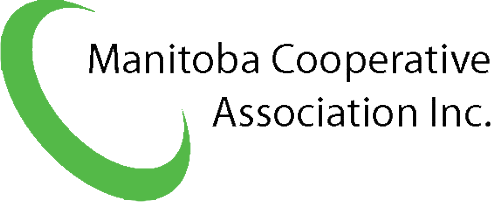 Buy Social Canada has announced the winners of the 2021 Social Procurement Champion Awards.
Buy Social Canada has announced the winners of the 2021 Social Procurement Champion Awards.
The Champions are a municipality, a community advocacy group and a group of social enterprises who have successfully endeavoured to advance social procurement in their communities. Together these champions represent the necessary elements for a healthy social procurement ecosystem: the integration of social value demand, social enterprise supply, and community development. Together these elements create our future economies, where we collectively leverage existing purchasing to shape inclusive, vibrant and healthy communities
 City of Calgary for the Benefit Driven Procurement Policy
City of Calgary for the Benefit Driven Procurement Policy
In the social procurement purchaser category, the demand side of the marketplace, the 2021 champion is the City of Calgary’s Benefit Driven Procurement Policy. Across Canada the social procurement movement has been led on the municipal level, and Calgary has set the bar high for all purchasers. Calgary is using a comprehensive approach that includes a three-year pilot/implementation strategy, evolving metrics, multi-stakeholder engagement, training, and intentional change management, culminating in a recommended policy.
 Construction Social Enterprises EMBERS, BUILD, Building Up, and Impact Construction
Construction Social Enterprises EMBERS, BUILD, Building Up, and Impact Construction
On the supply side of the marketplace, the Social Procurement Champions are a group of social enterprises engaged in and supporting the construction industry across the country: EMBERS in Vancouver, BUILD in Winnipeg, Building Up in Toronto, and Impact Construction in St. John’s. With the growing trend of Community Benefits Agreements (CBA) and Infrastructure Canada’s Community Employment Benefit Initiative (CEB) across Canada, the construction supply chain for labour and sub-contractors offers tremendous opportunities and social enterprises are responding. These social enterprises are countering the preconceptions and myths that using social enterprise suppliers results in higher costs and lower quality. In fact, with their competitive pricing and quality work, these social enterprises working in the construction industry are creating pathways to skilled, meaningful, and well-paying work for youth and equity-seeking individuals, while also filling critical labour gaps in the construction industry. These social enterprises represent exactly what it means to build back better.
 LeBreton Flats Community Benefit Coalition
LeBreton Flats Community Benefit Coalition
From the first Canadian CBA for the 2010 Olympic village in Vancouver, to successful social procurement advances in cities like Calgary, Edmonton, and Toronto, the role of community-based leadership and advocacy is essential. The Social Procurement Champions for community advocacy this year are the LeBreton Flats Community Benefits Coalition, in Ottawa. The LeBreton Flats Community Benefits Coalition is a collaboration of 31 community organizations advocating for a CBA approach to the redevelopment of a 29 hectare federally owned tract of land in Ottawa and thereby stretch the value of every dollar of investment to realize multiple benefit outcomes. This advocacy has led to collaboration with the City of Ottawa and includes efforts to realize social procurement policies and initiatives, thereby supporting the burgeoning cluster of social enterprises in the Ottawa region. This year we celebrate the forward-thinking efforts of the LeBreton Flats Community Benefit Coalition, which was initiated and driven by volunteers from the communities that will be directly impacted by the land transfer.
Celebrate, connect with, and learn from the 2021 Social Procurement Champions at the Buy Social Canada Symposium. The awards will be presented by past Social Procurement Champions, SAP and Chandos Construction and will feature discussions where we can learn from the important work being done across Canada to harness the power of purchasing to create impact.



 Lauren Eddy is a musician, singer- songwriter, and sound technician from Bonavista, Newfoundland and Labrador. She now resides in St. John’s. Lauren’s current musical focus is her pop-rock group, Saint Scarlett. The group released their debut 6 song EP in January 2020. The project was nominated for two MusicNL awards in 2021. Lauren is also First Light’s new full-time Arts Technician. She also does a variety of freelance sound technician work for local businesses, music venues, and community events. Lauren graduated from the College of the North Atlantic with a diploma in Sound Recording & Production and diploma in Music Performance, Business, & Technology. Lauren has a passion for music, art, and community. In her free time she enjoys hiking and gardening.
Lauren Eddy is a musician, singer- songwriter, and sound technician from Bonavista, Newfoundland and Labrador. She now resides in St. John’s. Lauren’s current musical focus is her pop-rock group, Saint Scarlett. The group released their debut 6 song EP in January 2020. The project was nominated for two MusicNL awards in 2021. Lauren is also First Light’s new full-time Arts Technician. She also does a variety of freelance sound technician work for local businesses, music venues, and community events. Lauren graduated from the College of the North Atlantic with a diploma in Sound Recording & Production and diploma in Music Performance, Business, & Technology. Lauren has a passion for music, art, and community. In her free time she enjoys hiking and gardening.  The Canadian CED Network’s
The Canadian CED Network’s  During the week of February 8-12, CCEDNet had the great pleasure of visiting – virtually of course – nine examples of innovative community leadership across Canada. These visits were part of a tour organized by CCEDNet for the Hon. Ahmed Hussen, Minister of Families, Children and Social Development.
During the week of February 8-12, CCEDNet had the great pleasure of visiting – virtually of course – nine examples of innovative community leadership across Canada. These visits were part of a tour organized by CCEDNet for the Hon. Ahmed Hussen, Minister of Families, Children and Social Development.  We learned about small business ventures that focus on people and community, not profits, with
We learned about small business ventures that focus on people and community, not profits, with  We capped off the tour with a round table discussion between Minister Hussen and members of the
We capped off the tour with a round table discussion between Minister Hussen and members of the  It was a great way to spend a week. But, we weren’t doing it just for fun. The whole purpose of the tour was to see first-hand some of the impacts of the
It was a great way to spend a week. But, we weren’t doing it just for fun. The whole purpose of the tour was to see first-hand some of the impacts of the  ery stop along the tour, our tour guides reinforced the need for social finance, social procurement, knowledge-sharing from community to community, increased access to federal innovation, business development, and skills training programs, and a supportive social economy “ecosystem”. They spoke about the need for co-creation, with government, to ensure that changes to policy and legislation meet communities’ needs. Coincidentally (or not!), these recurring themes are all part of the
ery stop along the tour, our tour guides reinforced the need for social finance, social procurement, knowledge-sharing from community to community, increased access to federal innovation, business development, and skills training programs, and a supportive social economy “ecosystem”. They spoke about the need for co-creation, with government, to ensure that changes to policy and legislation meet communities’ needs. Coincidentally (or not!), these recurring themes are all part of the  COVID-19 has seriously impacted our access and use of public spaces which are the glue to our communities. They are a big part of what makes communities safe, vibrant and connected.
COVID-19 has seriously impacted our access and use of public spaces which are the glue to our communities. They are a big part of what makes communities safe, vibrant and connected.


 Ingamo Hall Friendship Centre
Ingamo Hall Friendship Centre Atikokan Native Friendship Center
Atikokan Native Friendship Center Skillcity Institute
Skillcity Institute Moving Forward Co-operative
Moving Forward Co-operative Alberta Community and Cooperative Association
Alberta Community and Cooperative Association Co-operative Enterprise Council of New Brunswick
Co-operative Enterprise Council of New Brunswick Greater Trail Community Skills Centre
Greater Trail Community Skills Centre Ottawa ACORN
Ottawa ACORN Chartered Professional Accountants of BC
Chartered Professional Accountants of BC Manitoba Cooperative Association
Manitoba Cooperative Association OnePeopleTO
OnePeopleTO
 At
At  Sarah Leeson-Klym is CCEDNet’s Regional Networks Director. She believes that communities are the experts of their lived experience and that CED provides great approaches for them to develop creative and grounded solutions to the biggest challenges we collectively face. She first obtained an Arts and Cultural Management certificate from MacEwan University, then worked and volunteered in a range of capacity building programs before graduating with a BA (Honours) degree in Social Justice Theory and Practice from the University of Winnipeg in 2012.
Sarah Leeson-Klym is CCEDNet’s Regional Networks Director. She believes that communities are the experts of their lived experience and that CED provides great approaches for them to develop creative and grounded solutions to the biggest challenges we collectively face. She first obtained an Arts and Cultural Management certificate from MacEwan University, then worked and volunteered in a range of capacity building programs before graduating with a BA (Honours) degree in Social Justice Theory and Practice from the University of Winnipeg in 2012. The Co-operators’
The Co-operators’